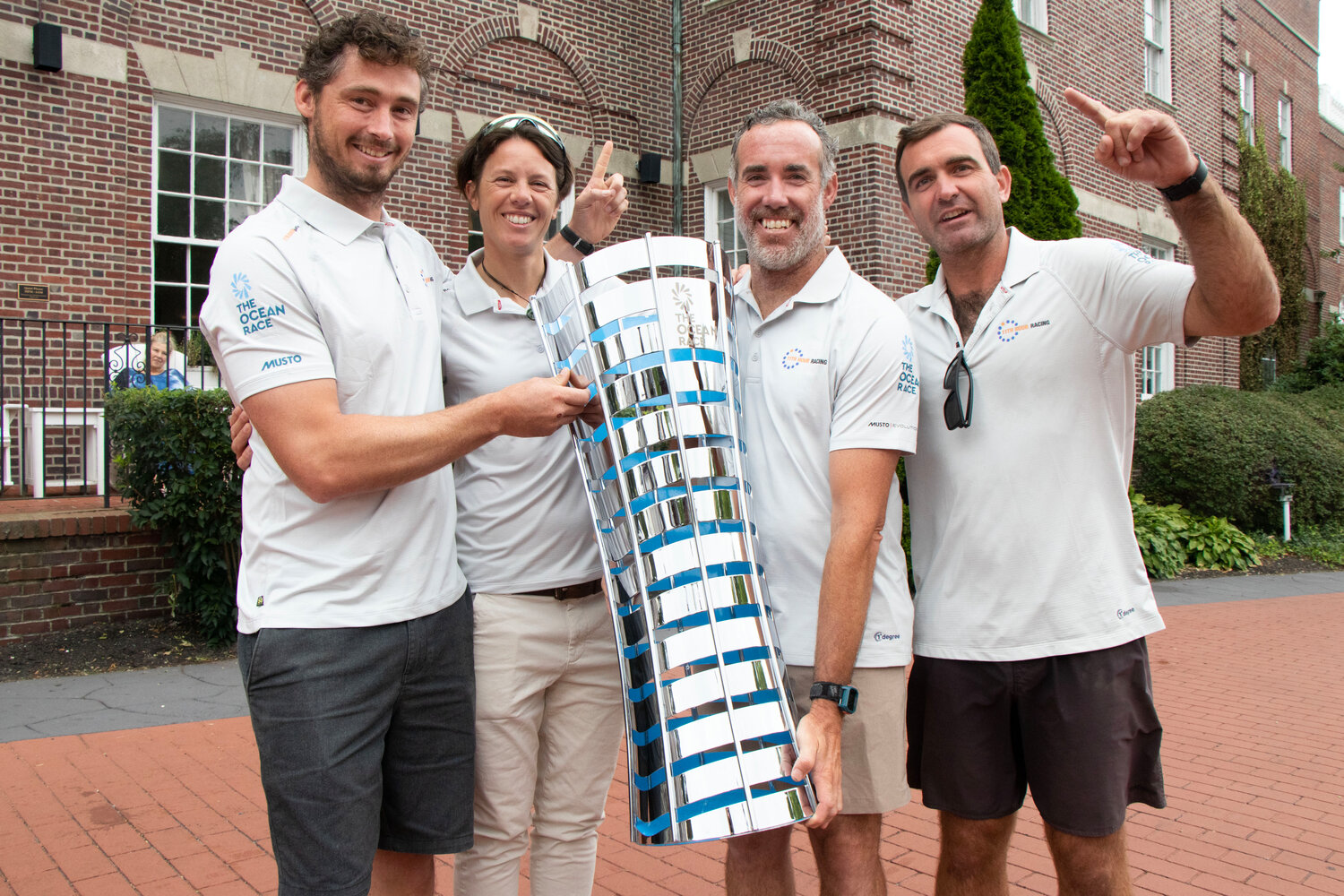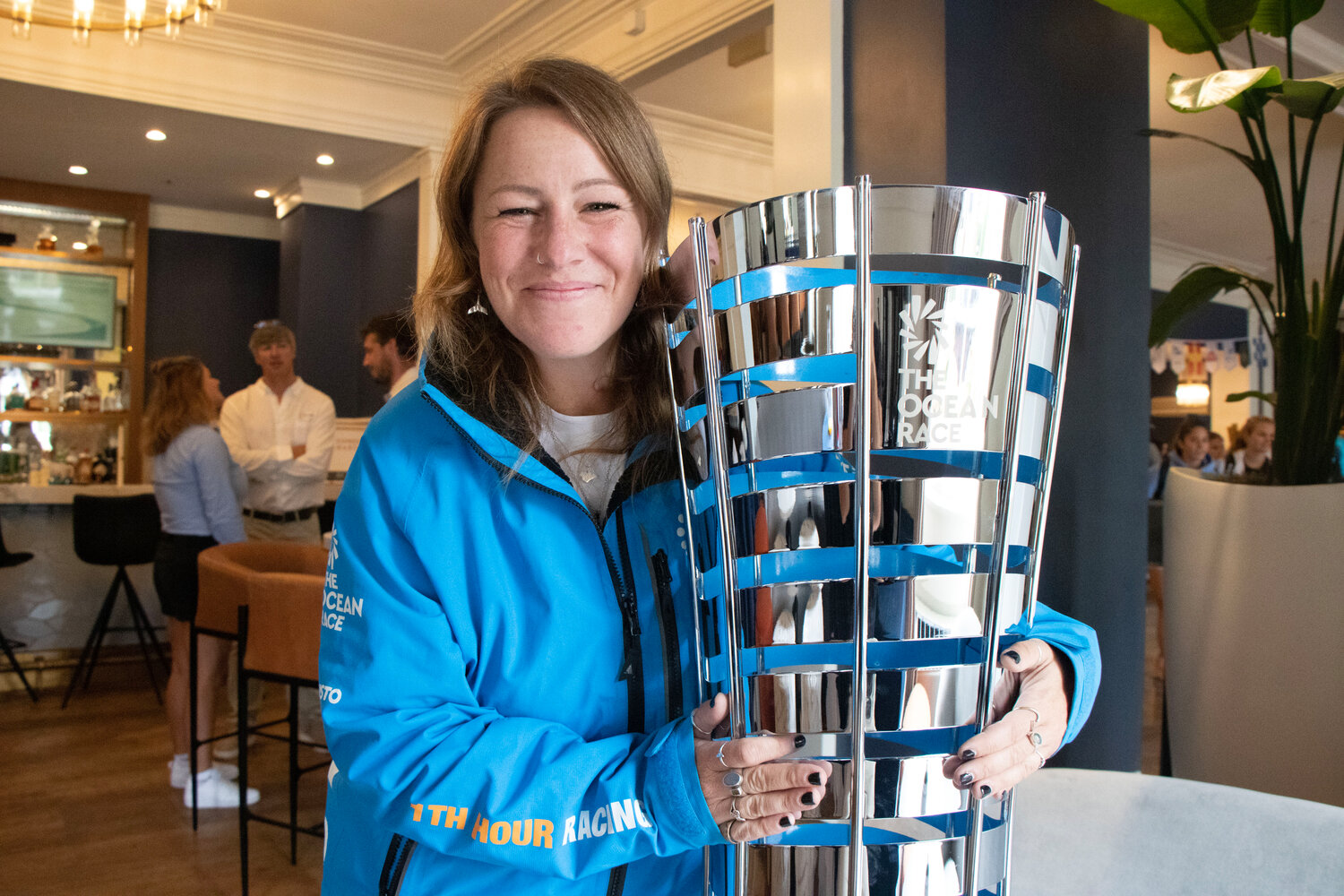Enright reflects on 11th Hour's wild and historic Ocean Race victory
Charlie Enright, the winning skipper of the 2022-2023 Ocean Race, discusses the 6-month, 7-leg around-the-world race that saw an American team win the whole thing for the first time in its 50-year history.
This item is available in full to subscribers.
Please log in to continue |
Register to post eventsIf you'd like to post an event to our calendar, you can create a free account by clicking here. Note that free accounts do not have access to our subscriber-only content. |
Day pass subscribers
Are you a day pass subscriber who needs to log in? Click here to continue.
Enright reflects on 11th Hour's wild and historic Ocean Race victory
“Are you part of the solution? Or part of the problem?”
Charlie Enright, the winning skipper of the 2022-2023 Ocean Race, found that question at the heart of the matter over and over during the 6-month, 7-leg around-the-world race that saw an American team win the whole thing for the first time in its 50-year history.
By the time of the June 15 leg 7 start in The Hague that saw Enright’s 11th Hour Racing Team forced to suspend racing after Mālama, their Imoca 60, was hit by GUYOT environnement-Team Europe, the Team had many opportunities to ask themselves that question — and then rise to meet the occasion.
“Yeah, that was the most dramatic and most televised,” said Enright last week in Newport a few hours before hosting a victory party in 11th Hour’s hometown. “But that’s the kind of adversity that we've gone through. Getting the train back on the tracks wasn’t much different than what we had done previously.”
Indeed, the extreme race was loaded with challenges, equipment breakdowns, injuries, and even a megafauna strike. And that was just onboard Mālama. For the 11th Hour team, each instance of adversity became another opportunity to demonstrate that resilience and perseverance would ultimately carry the day.
“I think there is a time to be frustrated, to be angry, and even to have feelings of disbelief,” said Enright of the crash that he initially feared had ended their campaign just when victory was within reach. “I think that's all healthy because you need to do that…but once you have gotten that out of the way, it is time to move on. At that point you can be more pragmatic. You can look at it and say, ‘Okay, that sucked. Now we can let it beat us or we can get on with it.”
In reality, though, the team didn’t “get on with it” until the next day. “In the moment, we thought it was over,” Enright said. “Then some time passed and we recognized that there are processes in place for when things just like this happen.”
It was then, after the initial shock wore off, that they sprang to action, fixing Mālama in a round-the-clock effort that rallied the entire team. “You think you’ve got a great team around you, but it's not until you go through something like that, that you know you do,” said Enright.
From there, it became 12 days of hoping they would make it to Genoa in time to compete in the in-port race and maintain their winning status in that part of the series, as well as to discover if the jury’s redress would be enough to put them over the top for the overall win. “It definitely became a very difficult 12 days.”
A marriage of sport and science
Sustainability was the central theme of the 2022-2023 edition of the race; most notably, the event was climate positive, with 75% less emissions than the last edition of the Ocean Race. More than 30,000 students in the host cities learned about ocean health, and some 4 million pieces of data were collected. Much of that data was gathered in remote regions from which data is not typically collected.
Onboard the vessels, 15 different types of data were collected, including surface temperature, dissolved carbon dioxide and microplastics; 14 autonomous drifting buoys were deployed in the southern hemisphere; and DNA sampling was used to research ocean biodiversity.
“It’s crazy technology,” said Enright. “You take the water sample and through some strange scientific process that some genius came up with you can actually measure what flora and fauna had been in that particular body of water previously.”
As they did with the competition, 11th Hour led the way with sustainability initiatives.
“There's a lot of things that we worked out with the race organization and the class to make sure that it got implemented,” said Enright. “We were out there collecting data, but we also worked with the race organizers to make sure that everybody else in the race was also collecting data and we weren't the only boat carrying a 60 kilogram water sampling device…Part of it was incentivizing, part of it was mandating, part of it was collaborating with these different entities to make sure that not only was everybody doing it so that there was more valuable data, but also that it wasn't a competitive hindrance in the end.”
Sustainable sustainability
To develop a sustainability plan that would deliver meaningful, long-term results was the job of Amy Munro, 11th Hour’s Sustainability Officer.
“We came up with a strategy that covered four key areas: leadership, innovation, collaboration, and legacy,” said Munro, citing The Toolbox as a flagship project that resulted from her team’s efforts.
The Toolbox is a free suite of guides, tools, and templates designed to help organizations create a comprehensive sustainability program. It’s a step-by-step roadmap to integrate sustainability practices in their operations.
“It came about as a result of us looking at our supply chain understanding that about 80% of our footprint was within our influence space rather than under our direct control,” said Munro. “So we were having conversations about their sustainability and realizing there's lots of open doors for those conversations, but not necessarily a lot of time or
knowledge of where to start or what to do from there.”
The Toolbox, accessible at sustainabilitytoolbox.com, is rolling out globally. It was recently adopted by the Association of National Olympic Committees, which has implemented it throughout their membership. There are currently 600 users from 100 different countries (and counting), and it has been translated into four languages. It’s just one (albeit an important one) of the more than 80 sustainability initiatives that 11th Hour has introduced out since the campaign began. And now, with the win, the team can even more effectively spread their message.
“Winning gives you a lot of voice, a bigger platform, more exposure and more credibility,” said Enright.
Highs and lows
If you were to guess what Enright’s favorite leg of the race was — and you guessed Itajaí, Brazil to Newport, where the hometown team arrived at the head of the fleet — you’d be wrong.
Enright’s favorite? “Probably Cape Town to Itajaí,” he said. “It was an unmitigated disaster,” he said of the leg that saw rudders delaminated and the mainsail torn (twice.)
Enright’s embrace of disaster, or rather, his attitude and ability to embrace it until he turns it around into something good, probably explains his winning energy as well as anything (that, and the fact that he is a really great sailor surrounded by a lot of other really great sailors.)
“We scrapped for some points that we knew were going to be valuable down the road, if this thing was going to end the way we wanted,” he said. “But it’s the feeling of accomplishment…I’m biased, but these boats are the most difficult boats to sail in the history of the race. And this course had the longest and most difficult leg in the history of the race at 13,000 miles. Those are agreed-upon facts.”
“So then would you not say that this was probably the hardest edition of the race ever?”
So is Enright going to try to come back for the next edition?
“I don't know. I have no idea,” he laughed. “I’m just trying to get through today.”
“If I lived in a vacuum for sure — I think I’ve got the best job in the world — but it doesn't come without sacrifice. Right now I’m just taking some time to reflect. I want whatever is next to be the right thing, not just the next thing.”









